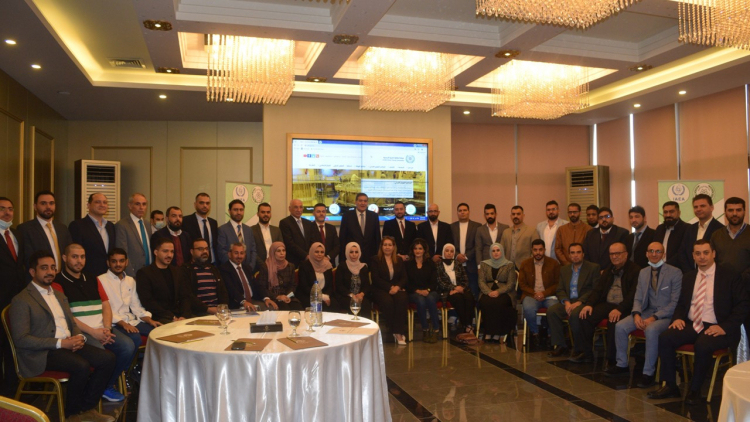The IAEA this week launched its biggest radiation protection training course in Arabic — thanks to cooperation from Jordan, which is hosting the course. The six-month Postgraduate Educational Course in Radiation Protection and the Safety of Radiation Sources (PGEC), designed for Arabic speaking countries in Asia, is bringing together 19 young professionals in radiation from Bahrain, Jordan, Iraq, Kuwait, Lebanon, Oman, the Palestinian Territories, Qatar, Saudi Arabia, Syria, the United Arab Emirates and Yemen and train them in radiation protection and the safety of radiation sources.
The PGEC course is a flagship IAEA training initiative that has contributed to strengthening the radiation protection and safety Infrastructure in many countries in a sustainable manner. Aimed at young professionals, the PGEC is based on a standard syllabus and features both theoretical and practical training elements and is offered in English, French, Portuguese Spanish, Russian, and now in Arabic. 109 courses have been held to date, and 1972 students have graduated.
“Properly trained staff are essential to ensure the safe and secure utilization of radiation and nuclear techniques for sustainable development,” said Hua Liu, Deputy Director General and Head of the IAEA’s Department of Technical Cooperation during an event launching the PGEC course on Sunday. He said the IAEA stands ready to work with Arab states in their efforts to make the PGEC course as successful and as sustainable as it can be. Radioactive sources are used throughout the world in medicine, industry, agriculture, research, and education.
Conveying the multidisciplinary scientific and technical foundation of international radiation protection standards and recommendations, the PGEC’s syllabus focuses on standards implementation and course participants are expected to be future senior managers, experts or trainers.
I would like to affirm that Jordan is keen to provide a robust educational training based on a tailored curriculum aligned with the development of Jordan's nuclear energy programme.







